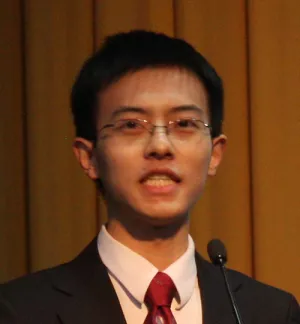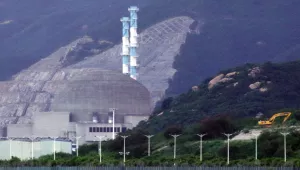
Post-Workshop Summary
On June 7, 2018, the Harvard Kennedy School’s Environment and Natural Resources Program and the Center for Science, Technology, and Education Policy at Tsinghua University held the fifth annual Tsinghua-Harvard Workshop on Low-Carbon Development and Public Policy. This event brought together leading experts on climate and energy from academic, business, and government communities in both the United States and China. Previous workshops dealt with technology innovation, climate, market mechanisms to reduce carbon emissions, and local low-carbon initiatives. This year’s workshop focused on electricity systems and renewable energy penetration.
The workshop was divided into three sessions: the first focused on challenges confronting the electricity system in both China and the United States; the second discussed alternative policies to promote and invest in renewable power options; and the last session focused on opportunities and challenges for electric vehicles.
This report is a summary of the major points covered during the workshop. It strives to capture the underlying arguments made by all the participants, including areas in which there was disagreement.
To combat the threat of economic and social disruptions due to climate change, the global community must commit to a long-term goal of deep decarbonization, defined as reducing global greenhouse gas emissions from fossil fuels to zero or even negative. Ambient CO2 concentrations have been increasing, reaching a monthly mean of 410ppm in 2017 (based on observations at Mauna Loa Observatory). In the past few years, most places in the world have also experienced higher annual average temperatures. In addition, changes in the climate system have already resulted in disruptions, including more severe heat waves, tropical cyclones, droughts, floods, forest fires, and crop damage. Even greater negative impacts are projected in the future. Since CO2 can remain in the atmosphere for centuries, it is not enough to simply slow down the growth of emissions. In the long run, deep decarbonization will be necessary.
A current challenge is to lay the foundations for deep decarbonization, even if energy technologies (including pricing) are not yet up to the task. Climate change is a long-term problem. Urgent action is necessary, but because of the scale of the problem and the time needed to develop new energy systems, the challenge will persist for many decades. Climate and energy policies, today, should be judged not only by how they relate to immediate goals of emissions reduction, but also by how they contribute to providing options for decarbonization pathways in the future.
China and the United States are in position to promote energy technology innovation and tackle climate change. As the two largest emitters of greenhouse gases, both countries have the opportunity to assume leadership positions. The landmark Xi-Obama climate agreement announced in 2014 outlined a unique collaboration between these two countries. This bilateral agreement also changed the character of global climate governance, which contributed to the success of the Paris Agreement.
China has made substantial efforts to reduce coal consumption and to increase non-fossil energy, and is currently on track to meet its climate pledges. While coal consumption reached 2.81 billion tce in 2013, it fell to 2.71 billion tce in 2017. The annual growth rate of non-fossil energy supply was 11.2% in 2012-2017. During the 13th Five Year Plan period (2016- 2020), the annual average GDP growth rate is expected to be around 6.5%, while the growth rate for energy consumption and CO2 emissions are anticipated to be only 2% and 1%, respectively. By 2020, the CO2 intensity (the ratio of CO2 emissions to GDP) is expected to decrease by more than 50% compared to 2005 level. It is therefore very likely that China will peak its carbon emissions before 2030 and achieve the targets pledged in the Paris Agreement to increase the share of non-fossil energy to 20% of primary energy.
In the United States, while the Trump Administration decided to withdraw from the Paris Agreement, efforts have been made by states, cities, business leaders, and universities to continue the support for climate action. The Trump Administration announced its decision to withdraw from the Paris Agreement in 2017, and has initiated a process to reverse many of the climate policies implemented by the Obama Administration, including the Clean Power Plan. These actions have damaged the moral authority of U.S. leadership in tackling climate change, and may result in delayed action and reduced funding for mitigation and adaptation efforts. However, about 70% of Americans believe that climate change is happening, and the percentage is even higher among young people. More than 2,800 leaders from cities, states, universities, and companies have signed the “We are Still In” declaration to stand by the Paris Agreement.
Given the present-day situation, two lines of cooperation between Chinese and U.S. scholars are especially valuable. The first is to work with each other to promote climate action from all entities, rather than be limited to government negotiations. The bottom-up action from states, cities, counties, universities, businesses, and investors provides opportunities for new forms of partnership between a wide range of actors to pursue ambitious climate goals. Second, organizations in both countries can partner with each other to flesh out and evaluate policies for innovation, mitigation, and adaptation, so that when the opportunities present themselves, actions can be taken.
Qiao, Qinyu, Wei Peng, Pu Wang and Henry Lee. “Harvard-Tsinghua Workshop on Low-Carbon Development and Public Policy.” Environment and Natural Resources Program, Belfer Center, September 2018










